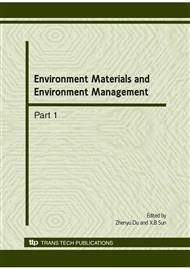p.662
p.666
p.670
p.674
p.679
p.685
p.689
p.694
p.698
Research on Non-Linear Dynamics Correcting Mechanism of Complex Products and System
Abstract:
The technology composition and system architecture of complex products and system (CoPS) is very sophisticated, and the success rate of CoPS development is low. A system-based model for optimal design of CoPS was presented with system dynamics (SD) as the study framework, and Rough Set (RS) theory was used to analysis the structure of feedback loops in causality graph of CoPS, so as to find non-linear dynamics correcting mechanism of CoPS, which can assist inexperienced users to perform simulation analysis for quality and reliability improvement, alternative design evaluation and modularity assessment, thus helping to enhance robustness of CoPS at the design stage and increase the success rate. This paper showed the practical application with a simulation case at last.
Info:
Periodical:
Pages:
679-684
Citation:
Online since:
June 2010
Authors:
Price:
Сopyright:
© 2010 Trans Tech Publications Ltd. All Rights Reserved
Share:
Citation:


